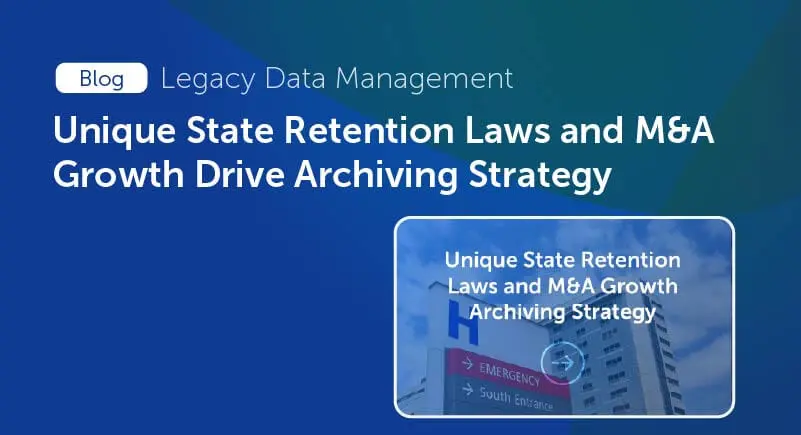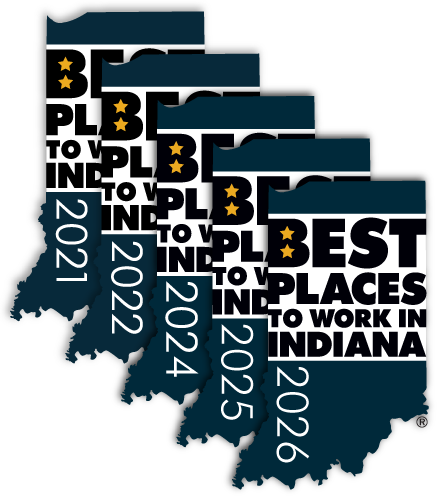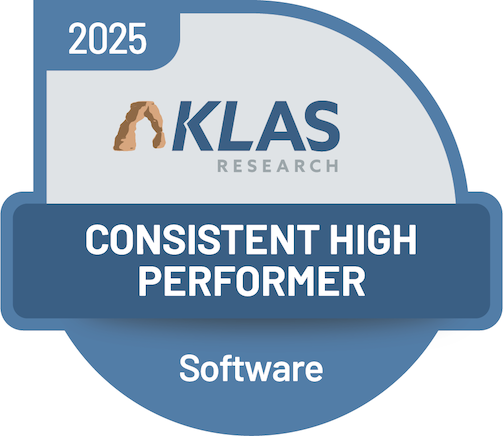Streamlining Lifecycle Data Management
Extract, Migrate, and Archive athenahealth Data.
athenahealth®, a cloud-based EHR and practice management (PM) provider, is widely used by medical groups and ambulatory practices.
Whether providers choose to stay with athenahealth as their go-forward or move to a new EHR, we’re here to provide trusted support. Our in-depth experience with the athenahealth product portfolio and its system-specific features is invaluable when it comes to successful data extraction, conversion, and archival.
Efficient Planning
Comprehensive Support
Develop a Data Strategy
Implementing a sound legacy data strategy is best practice when migrating to a go-forward EHR (athenahealth or others).
- Take a System Inventory
Capture the details of the source systems. Our inventory tool logs legacy system details to help scope data extraction, migration, and retention. This includes identifying contract renewal dates, system static dates, and A/R wind-down plans to prioritize the order of system decommissioning. - Identify Active and Archive Data
Determine which data will be converted to a new EHR and which will be archived. Our experts can help guide your change management planning and inform system decommissioning and data archive initiatives.
Typically, we convert one to two years of clinical data to the selected EHR. The rest of the clinical data—along with historical enterprise resource planning (ERP), revenue cycle, and other system data—is extracted and consolidated into our active archive, HealthData Archiver®. The archived data is available to clinicians at time of care through secure Single Sign-On capabilities.
We are Skilled in Overcoming Challenges with athenahealth Data
Initially, athenahealth offered a limited extraction export, followed by an expanded export option for more granular-level data reporting. Our team can work with either export or deliver an archive that supports your needs and goals. We are equipped to work with the PM or EHR systems and can create a separate or combined archive.
Another quirk of athenahealth: Explanation of benefits (EOB) reports available to export from athenahealth are not patient–centric, which means they may include transaction information from multiple patients. We plan for this unique data management situation in archive design.
Executing Your athenahealth Data Management
Learn more about HealthData Platform™, our enterprise-wide solution that enables secure extraction, migration, archiving, integration, and access to patient, employee, and business records—all leveraging a scalable, compliant infrastructure.
Why Choose Harmony Healthcare IT?
KLAS Rated
Consistently ranked highly in the data archiving category.
HITRUST Certified
Ensuring we meet the highest standards in data protection and security.
500 Clients
Across the healthcare continuum trust our expertise in data management.
12-24 Months
Timeframe for clients to realize ROI from archive projects.
HealthData Archiver®
HealthData Archiver®’s full integration ensures secure exchange and access to data within the entire healthcare ecosystem. Discretely archived data can be enabled for FHIR, C-CDA, HL7, XML, Direct, or other standards-based protocols for a variety of use cases:
Single Sign-On
Seamlessly authenticate, in patient-context, from athenahealth to HealthData Archiver®. Supported standards include Oauth/OpenID, Advanced Encryption Standard (AES), Security Assertion Markup Language (SAML 2.0), and other standards.
Consumer Record Access
The 21st Century Cures Act requires healthcare providers to provide patients with extensive access to electronic medical records in the format of their choosing, without charge.
Master Patient Index (MPI)
Link historical records to the master patient index (MPI) to reduce manual matching, improve accuracy and enable future interoperability. After consolidating IDs from multiple data sources,match records to the go-forward EHR using HL7 to merge (link) and unmerge (unlink) records as necessary.
Third-Party Auditing
Ensures that archived data within HealthData Archiver® is monitored for unusual activity and compliance through an integrated third-party monitoring platform. Capture audit activity from login to logout, and rest assured that the privacy and security of protected health information is covered.
Reporting/Analytics
Pre-define required reports as part of the data storage planning process. Connect an ODBC/JDBC reporting, analytics, or business intelligence tool of choice (e.g., Crystal Reports®, Qlik®, Tableau®, SAP®), to make the data dictionary and schema available to technical resources, who then self-serve on demand.
Data Export/Sharing
Export legacy data from HealthData Archiver® and share it with population health management applications, data warehouses, APIs, dashboard/visualization tools, HIEs, research teams, and more.
An Archive That Supports Interoperability and Flexibility
Contact us to learn more about how HealthData Platform™ supports interoperability and data access.
FAQs
Can you migrate data from athenahealth to Epic?
Yes, data can be migrated from athenahealth® to Epic. While migration simply refers to the movement of data from one system to another, there may need to be a conversion step to ensure the data is moved (migrated) and formatted to work with the new EHR. A full conversion to Epic can be complex and expensive. As such, usually only a subset of key clinical data from one to three years is typically migrated to Epic. In most cases, when there is a decision to change or upgrade EHRs, it makes sense to hold a strategic discussion to review the current inventory of source systems and determine the best option for moving forward with a plan for the current data that includes migration, conversion, and migration to storage. There are many benefits to including an open relational archive like HealthData Archiver® in the long-term data management plan. There are cost, security, and accessibility benefits to streamlining the data in the go-forward EHR and utilizing the archive with a Single Sign-On capability to keep the remaining data accessible from the go-forward EHR and compliant with record retention requirements.
Is athenahealth an EMR or EHR?
athenahealth® is an electronic health record (EHR). This means it has broader capabilities than an electronic medical record (EMR), most likely used within a medical clinic or physician’s office. EHRs are better equipped to support the record sharing (aka: interoperability) needed across the health care continuum of providers, labs, specialists, payers, and patients.
What products does athenahealth consist of?
athenahealth consists of several products, including: athenaIDX (revenue cycle management, RCM, and practice management), athenaClinicals (EHR), athenaCommunicator (patient engagement, care coordination), Epocrates (embedded in the EHR to provide clinical decision support), athenahealth Population Health (helps organizations analyze data, identify trends, and improve community health), and athenaOne (fully integrated cloud-based suite of solutions that includes EHR system, practice management, and care coordination).
Key Resources
Interested in learning more? Check out our resources on the impact of archiving on data storage and user workflows.









